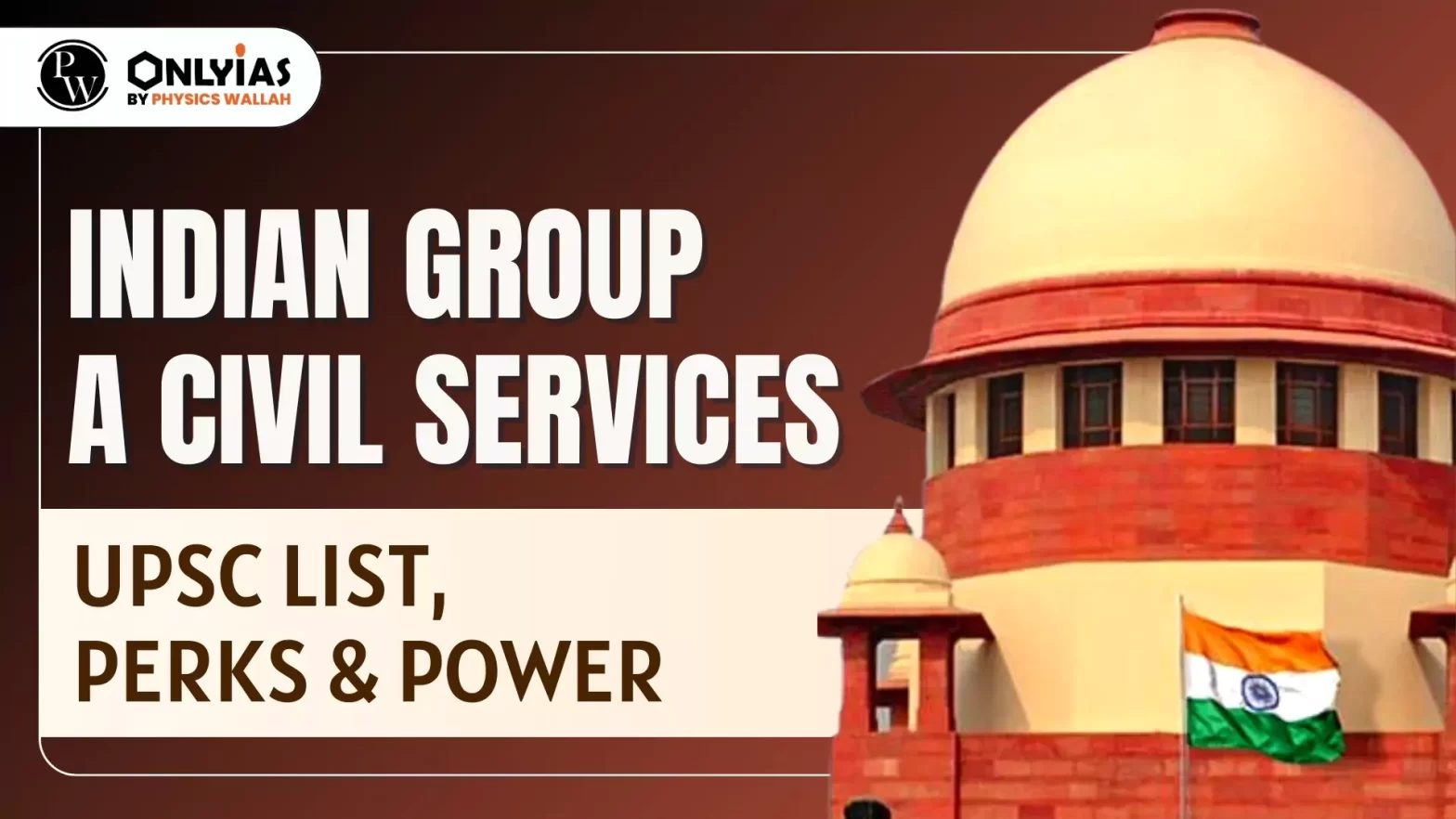Explore Indian Group A Civil Services under UPSC, including the complete list of top services, their roles, powers, and perks. Get insights into career growth, authority, and benefits of each service.

Indian Group A Civil Services represent the pinnacle of administrative roles in India, selected through the rigorous UPSC Civil Services Examination. These elite services, including IAS, IPS, IFS, and IRS, empower officers to shape national policy, maintain law and order, and drive development across diverse domains. With unparalleled perks like job security, housing, vehicles, and pensions, alongside substantial authority in decision-making and governance, they offer a prestigious career path. Aspiring for these positions demands dedication, strategic preparation, and a commitment to public service.
Group A civil services in India stand as the pinnacle of the nation’s bureaucratic and administrative structure, comprising a cadre of esteemed government officials entrusted with paramount responsibilities. These high-ranking officers play pivotal roles in shaping and executing policies across diverse sectors, encompassing governance, administration, diplomacy, law enforcement, revenue management, and environmental conservation.
| Services of Group A Civil Services | Description of Group A Civil Services |
| Indian Foreign Service (IFS): |
|
| Indian Revenue Service (IRS): |
|
| Indian Audit and Accounts Service (IA&AS): |
|
| Indian Civil Accounts Service (ICAS): |
|
| Indian Corporate Law Service (ICLS) |
|
| Indian Defence Accounts Service (IDAS): |
|
| Indian Defence Estates Service (IDES): |
|
| Indian Information Service (IIS): |
|
| Indian Ordnance Factories Service (IOFS): |
|
| Indian Postal Service (IPoS): |
|
| Indian Postal and Telegraph Accounts Service (IP&TAFS): |
|
| Indian Railway Accounts Service (IRAS): |
|
| Indian Railway Personnel Service (IRPS): |
|
| Indian Railway Traffic Service (IRTS): |
|
| Indian Statistical Service (ISS): |
|
| Indian Supply Service (ISS): |
|
| Indian Telecommunication Service (ITS): |
|
| Railways Protection Force (RPF): |
|
Group A civil services hold the highest rank in the central government hierarchy, featuring All India Services like IAS and IPS with national policy-making powers and gazetted officer status. Group B services support specialized functions at lower administrative levels, often non-gazetted initially, with promotion potential to Group A.
| Difference Between Group A and Group B Civil Services | ||
|---|---|---|
| Parameter | Group A Services | Group B Services |
| Rank and Status | Highest level, gazetted from entry | Mid-level, often non-gazetted initially |
| Recruitment | Primarily UPSC CSE, ESE, CMS | SSC CGL, departmental exams |
| Pay Scale | Level 10+, starting ₹56,100 | Level 6-9, lower starting pay |
| Responsibilities | Policy formulation, national governance | Implementation, supervisory roles |
| Promotion Scope | Direct to apex positions | Can promote to Group A over time |
| Must Read | |
| NCERT Notes For UPSC | UPSC Daily Current Affairs |
| UPSC Blogs | UPSC Daily Editorials |
| Daily Current Affairs Quiz | Daily Main Answer Writing |
| UPSC Mains Previous Year Papers | UPSC Test Series 2024 |
A graduate degree or an equivalent qualification from a recognized university is required for candidates applying for the Group A Civil Services officer post.
IA&AS contributes to government efficiency by implementing performance management systems, exploring blockchain for auditing, enhancing risk assessment methodologies, embracing digital tools, establishing fraud detection units, and providing consultancy on public financial management.
ICLS focuses on overseeing corporate social responsibility, implementing e-governance solutions, addressing digital data privacy concerns, supporting the startup ecosystem, strengthening intellectual property rights, and introducing corporate governance scorecards.
IDAS contributes to defense initiatives through strategic financial planning, conducting specialized defense procurement audits, enhancing transparency in defense budget allocation, conducting cybersecurity audits, exploring innovations in defense financing, and engaging in international defense financial cooperation.
IDES focuses on implementing smart infrastructure initiatives, undertaking heritage conservation projects, promoting environmental sustainability, fostering public-private collaboration in infrastructure development, enhancing community engagement, and implementing strategic land use planning for optimal utilization of defense land resources.
IIS contributes to global communication through the execution of digital diplomacy campaigns, promoting open government data initiatives, countering fake news, monitoring government-related content on social media, managing crisis communication, and exploring innovative communication technologies.
IOFS incorporates advanced manufacturing technologies, digitizes supply chains, collaborates with research institutions for cutting-edge research, implements green manufacturing practices, facilitates international collaborations for joint defense manufacturing projects, and initiates skill development programs.
IPoS enhances last-mile delivery and postal services through the introduction of innovative solutions, collaboration with e-commerce platforms, implementation of digital addressing systems, expansion of financial services through postal banking, automation of postal processes, and establishment of customer feedback mechanisms.
IP&TAFS plays a crucial role in the telecom sector by utilizing advanced financial analytics, ensuring revenue assurance, managing finances for broadband expansion, overseeing cybersecurity finance, collaborating with international counterparts for telecom financial partnerships, and exploring innovative financial models for telecom projects
IRAS contributes to railway development through specialized budgeting for high-speed rail projects, expanding financial services within the railway ecosystem, implementing digital ticketing solutions, allocating budgets for environmentally sustainable initiatives, developing comprehensive financial plans, and ensuring financial transparency in rail operations.
IRPS takes initiatives for employee welfare by designing and implementing welfare programs, allocating budgets for training and development, developing and implementing comprehensive career path planning programs, promoting diversity and inclusion, allocating budgets for health and safety measures, and implementing employee engagement strategies.
IRTS optimizes railway operations through the implementation of advanced integrated traffic management systems, allocating budgets for freight logistics optimization, enhancing passenger comfort and experience, developing smart railway stations, collaborating with neighboring countries for coordinated cross-border railway operations, and investing in research and development for innovative solutions in rail traffic management.
<div class="new-fform">
</div>